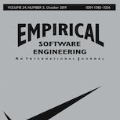The use of large language models (LLMs) for qualitative analysis is gaining attention in various fields, including software engineering, where qualitative methods are essential for understanding human and social factors. This study aimed to investigate how LLMs are currently used in qualitative analysis and their potential applications in software engineering research, focusing on the benefits, limitations, and practices associated with their use. A systematic mapping study was conducted, analyzing 21 relevant studies to explore reported uses of LLMs for qualitative analysis. The findings indicate that LLMs are primarily used for tasks such as coding, thematic analysis, and data categorization, offering benefits like increased efficiency and support for new researchers. However, limitations such as output variability, challenges in capturing nuanced perspectives, and ethical concerns related to privacy and transparency were also identified. The study emphasizes the need for structured strategies and guidelines to optimize LLM use in qualitative research within software engineering, enhancing their effectiveness while addressing ethical considerations. While LLMs show promise in supporting qualitative analysis, human expertise remains crucial for interpreting data, and ongoing exploration of best practices will be vital for their successful integration into empirical software engineering research.
翻译:暂无翻译




